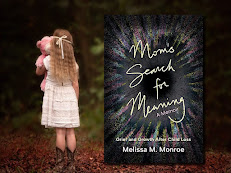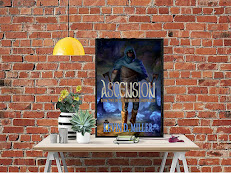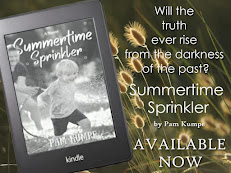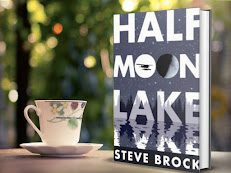Finding Your Writing Home
By David W. Berner
Virginia Woolf called it a “room of one’s own.” George Bernard Shaw wanted
his old hut to be a hideaway from people so he could work. Dylan Thomas wrote
in the privacy of a room above an old boathouse in Laughnare, Wales.
A writing place, a sacred spot to work, has been key to the work of many
famous writers. And as I began my writing life years ago, working more
seriously writing essays and books, I too, found I wanted that special kind of
space, a room of my own.
For many years, I wrote almost exclusively in coffee shops. The buzz and
whir of a coffee house was comforting, and the act of people watching was both
research and a release. But in time, I wanted something more personal, a
personal space where I could fall hard into my thoughts.
So I studied Thomas’ boathouse, Shaw’s hut, and then Thoreau’s cabin. I
considered photos and drawings, noted what they kept inside these writing
places and how they worked in them. I found more—Roald Dahl’s shed and the
extraordinary shack of poet Robert Stephen Hawker built into a hillside
Cornwall in England. Then I read Michael Pollan’s book, A Place of My Own:
The Architecture of Daydreams. It’s the story of his planning and building
a writing hut for himself in the Connecticut woods.
With all this and a dream, I set out to build my own writing shed.
I found a company that could deliver an 8-by-10 foot structure, complete
with shingled roof, a window, and a door. It needed to be painted and the
inside was unfinished. A flat bed and a Bobcat moved it into a corner the
backyard, we maneuvered it into place and augered it into the ground. I soon
began the process of insulating, nailing barn wood paneling to the walls,
tiling the floor, and whitewashing the unfinished ceiling to best match the
interior of Thomas’ boathouse. A bookshelf and a desk came next. I moved two
lamps and a space heater inside. White blinds were installed on the window and
the door. I lugged in books, a chair, and my old six-string acoustic guitar.
And when all was complete, I lit a candle and sat at the desk in the quiet of a
spring evening. I had found my writing home.
I would love to tell you that since the building of the shed, all of my
books have soared to the top of the bestseller list and I’m now in the process
of writing a literary masterpiece. Of course this is not the case. But I write
in my shed nearly every day of the year now. I read and I think there. I take
no phone calls. I read no email. The shed is my holy space and it has become my
source of literary light; it is my writing home.
There is no perfect writing environment. It is entirely a personal matter,
as individualistic as a hairstyle. And it could also be a moving target,
shifted by specific needs or project’s requirements. The late writer Jim
Harrison said at one time he could only write in his cabin or his house, but in
an interview for a publication for the University of Iowa, Harrison added that
he got liberated once and wrote an entire novella in a Montana motel. But
whatever or wherever it is, it is worth the search for it.
Nearly all of the writing of my latest memoir, The Consequence of Stars
was done inside my shed. And there is no doubt that that special place helped
me focus on the memoir’s main theme of “finding home.” The shed is my home, my
writing home, and it brought the overall thread of the book to a complete and
full circle, and solidified my belief in the power of what Hemingway called “a
clean, well-lighted place.”
It seems some writers, like Harrison at one time, may always be looking for
a fresh creative space that gives renewed energy to the work. And maybe someday
I’ll go searching again, but for now, the small shed in my backyard, 150 feet
from the house’s rear door, is my one and only hallowed space.
About the Author
David W. Berner is a memoirist whose personal
stories tell all of our stories. His memoirs reflect on our
collective relationships and how those experiences link us to the world we
share. From stories of fathers and sons, to road trips, travel memoir, pets,
and music, David's books are mirrors of our common human experience.
Storytelling has been a part of
David's life since his days as a young boy, delivering The Pittsburgh
Press newspaper. He began telling his own stories and the stories of others as
a reporter for numerous radio stations, including freelance work at National
Public Radio and more recently for CBS in Chicago.
David's reporting background has
given birth to award-winning memoirs and novels based on his own experiences.
He has been the
Writer-in-Residence for the Jack
Kerouac Project in Orlando, where he was privileged to live and work at the Kerouac
House in Orlando for two-and-a-half months. He later was honored with the
Writer-in-Residence position at the Ernest Hemingway Birthplace Home in Oak Park,
Illinois.
Website: https://www.davidwberner.com/
Twitter: http://www.twitter.com/davidwberner
Facebook: https://www.facebook.com/DavidWBernerWriter/?modal=admin_todo_tour
(David W. Berner—Writer)
About the Book:
Title: CONSEQUENCES OF STARS: A MEMOIR
Author: David W. Berner
Publisher: Adelaide Books New Yotk/Lisbon
Pages: 200
Genre: Memoir/Essays
Author: David W. Berner
Publisher: Adelaide Books New Yotk/Lisbon
Pages: 200
Genre: Memoir/Essays
BOOK BLURB:
THE CONSEQUENCE OF STARS is a unique
and thoughtful memoir on our eternal search for home. Told in a series of
essays on love, loss, travel, music, spirituality, and the joys of solitude,
memoirist David W. Berner, reaches deep to discover where he belongs and
ultimately where all of us belong.
"Berner gives us both travelogue and memoir in living,
breathing depth and color." --- D.S. White, Editor-in-Chief, Longshot
Island.
"A writer with an enormous sense of humanity." -- San
Francisco Review of Books
"Reflective, engaging...Berner's authentic storytelling
takes you with him on his travels through the chapters of his life where in the
end, he reveals connections to finding a place to be, his home under the
stars." -- Nancy Chadwick, author of Under the Birch Tree.
ORDER YOUR COPY:
Adelaide Books









































































































































































No comments:
Post a Comment